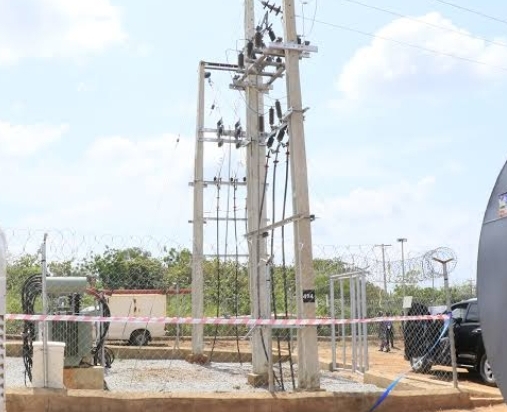Abia State Government has released the final draft of its mini-grid regulation as part of efforts to boost rural electrification, improve access to reliable electricity across the state and provide a clear regulatory framework to attract investors.
The Commissioner for Information, Prince Okey Kanu, disclosed this while briefing Journalists on the outcome of this week’s Executive Council meeting presided over by Governor Alex Otti.

Prince Kanu said the mini-grid regulation was developed by the Ministry of Power and Public Utilities “to support the expansion of reliable, affordable and sustainable electricity access across underserved and unserved communities in the State”.
He said that the regulation aligns with the vision of the present administration to boost rural electrification through private sector participation and enabling regulatory certainty for mini-grid development.
“The draft regulations outline the legal, technical, and commercial framework for mini-grid operators.
“This is a vital step towards building a transparent and enabling environment for decentralized energy systems in the state.

Prince Kanu noted that while the initiative will be implemented Statewide, Abia North Senatorial Zone, which appears underserved, will benefit immensely from the initiative.
“When this initiative becomes fully operational, it is expected that the northern part of the state, that is Abia North Senatorial Zone, which appears underserved, will benefit immensely from this initiative.
“This is not to downplay the essence of this initiative in other parts of the state when it becomes fully operational.
“It will be a statewide implementation of the initiative, but we believe that one part of the state currently appears underserved”, the Commissioner emphasized.
Prince Kanu announced that a 10-man Abia Advisory Council on Electricity will be inaugurated on Thursday, July 24, 2025 to provide professional guidance to the Governor on issues relating to power in the State.
“This, of course, forms one of the strategic steps taken by the State Government to improve on the Power Sector of the State”, he said.

Prince Kanu further disclosed that the State Government is set to commission the Okwoyi Water Scheme in Isieke, Ibeku on Wednesday, July 23, 2025, describing the project as part of the present administration’s promise to deliver potable water to every household in the State.
He disclosed that the State Government has donated a 1,000kVA transformer to the Niger Street/Methodist axis through the Ikwuleghe/CPS community in Umuahia, as part of ongoing efforts to boost electricity supply in the area.
Prince Kanu added that the gesture aligns with the State Government’s commitment to ensuring steady power supply for residents across the State.
Contributing, the Commissioner for Power and Public Utilities, Mr Ikechukwu Monday clarified that the mini-grid regulation is distinct from the State’s ongoing negotiations with the Enugu Electricity Distribution Company (EEDC) adding that mini-grids would play a crucial role in providing electricity to off-grid areas.

The Commissioner explained that the first phase of the State’s electrification initiative involves establishing a solid regulatory framework and attracting mini-grid investors, supported by local communities.
“In that regard, we are creating a regulation that will encourage private investors to come in and build mini-grids. This will be in conjunction with communities as well, to make sure that electricity access gets to our people”, he said.
Mr Monday revealed that although partial mapping of the state has been done, the next step is conducting feasibility studies to fully identify where there is no electricity at all; unserved and those not properly served; underserved areas.
He emphasized the importance of private sector involvement, noting that government alone cannot shoulder the responsibility of expanding electricity access.
The Commissioner further highlighted that Nigeria’s major electricity challenge is not power generation, but poor infrastructure in distribution and transmission adding that this is where mini-grids offer a solution, as they come with complete infrastructure for localised power delivery.
He encouraged public input into the ongoing regulatory process, stressing the potential of interconnected mini-grids to feed into the national grid, provided proper regulations are in place for collaboration with existing utility providers like EEDC.

Also, the Chief Press Secretary to the Governor Mr Ukoha Njoku Ukoha, while explaining that mini-grids are decentralised systems designed to serve specific clusters based on their unique energy needs, stressed the importance of long-term energy demand forecasting.
He noted that Nigeria’s electricity crisis stems from a historical failure to expand infrastructure in line with population and industrial growth and advocated for future-focused planning to ensure that capacity always exceeds demand to enable consistent power for both households and industries as the State develops.

























